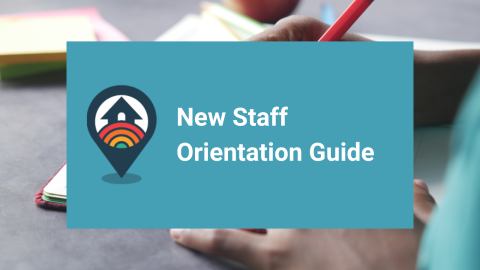Knowledge & Resources
Search and download a library of information and resources for health professionals and housing specialists.
Featured Article

This guide compiles introductory resources offered by HHRC into an orientation guide for new professionals. These resources provide introductions to serious mental illness, serious emotional disturbance, co-occurring disorders, achieving and maintaining housing, and treatment and engagement models.
Read MoreRecent Articles
Explore The Resources
Filter
Clear All- Topic: Recovery Housing, Medication Assisted Treatment (MAT), Hospital/clinic
- 7 results found
- Recovery Housing
- Medication Assisted Treatment (MAT)
- Hospital/clinic
Results
-
Fact Sheet Overdose Prevention Vending Machines: Considerations for Implementation
This fact sheet introduces the evidence-based vending machine model, explains how it supports overdose prevention strategies, outlines what supplies to include, and highlights key considerations for implementation.
- Topic
- Co-occurring Disorders; Substance Use: Substance use prevention, Substance use treatment; Treatment Models; Specialized Partnerships: Military/VA, Hospital/clinic, Criminal/ Legal
- Language
- English
-
Toolkit Guide to Methamphetamine Use, Treatment, and Housing Considerations for People Experiencing Homelessness
This guide explores how service providers can better support people who use methamphetamine in the process of transitioning into and maintaining housing.
- Topic
- Co-occurring Disorders; Substance Use: Substance use prevention, Substance use treatment; Housing Models: Permanent Supportive Housing, Recovery Housing; Housing Navigation: Landlord engagement; Supportive Services: Peer Services / Supports; Integrated Care
- Language
- English
-
Toolkit Recovery Housing: Expanding Access and Supporting Choice
This brief explains what recovery housing is, why it is an important resource within a CoC, and how housing and homeless service providers can help people find this type of housing.
- Topic
- Co-occurring Disorders; Substance Use: Substance use prevention, Substance use treatment; Housing Models: Recovery Housing; Treatment Models: Residential
- Language
- English
-
Fact Sheet Guide to Resource Mapping and Assessing Community Needs
This fact sheet describes available data sources for identifying service gaps and provides guidance for engaging in resource mapping to address those unmet needs.
- Topic
- Supportive Services: Employment, Mainstream benefits, Disability benefits, Peer Services / Supports, Education Supports, Family Supports; Specialized Partnerships: Military/VA, Hospital/clinic, Education, Criminal/ Legal, Faith-based, HUD Continuum of Care (CoC), Tribal Communities; Integrated Care; Data
- Language
- English
-
Article Case Study: Northwest Michigan Supportive Housing
Programs across the country deliver innovative, comprehensive care to residents in supportive housing. In this case study, we feature Northwest Michigan Supportive Housing (NMSH).
- Topic
- Co-occurring Disorders; Substance Use: Substance use prevention, Substance use treatment; Housing Models: Permanent Housing, Permanent Supportive Housing, Recovery Housing; Treatment Models; Supportive Services: Peer Services / Supports
- Language
- English